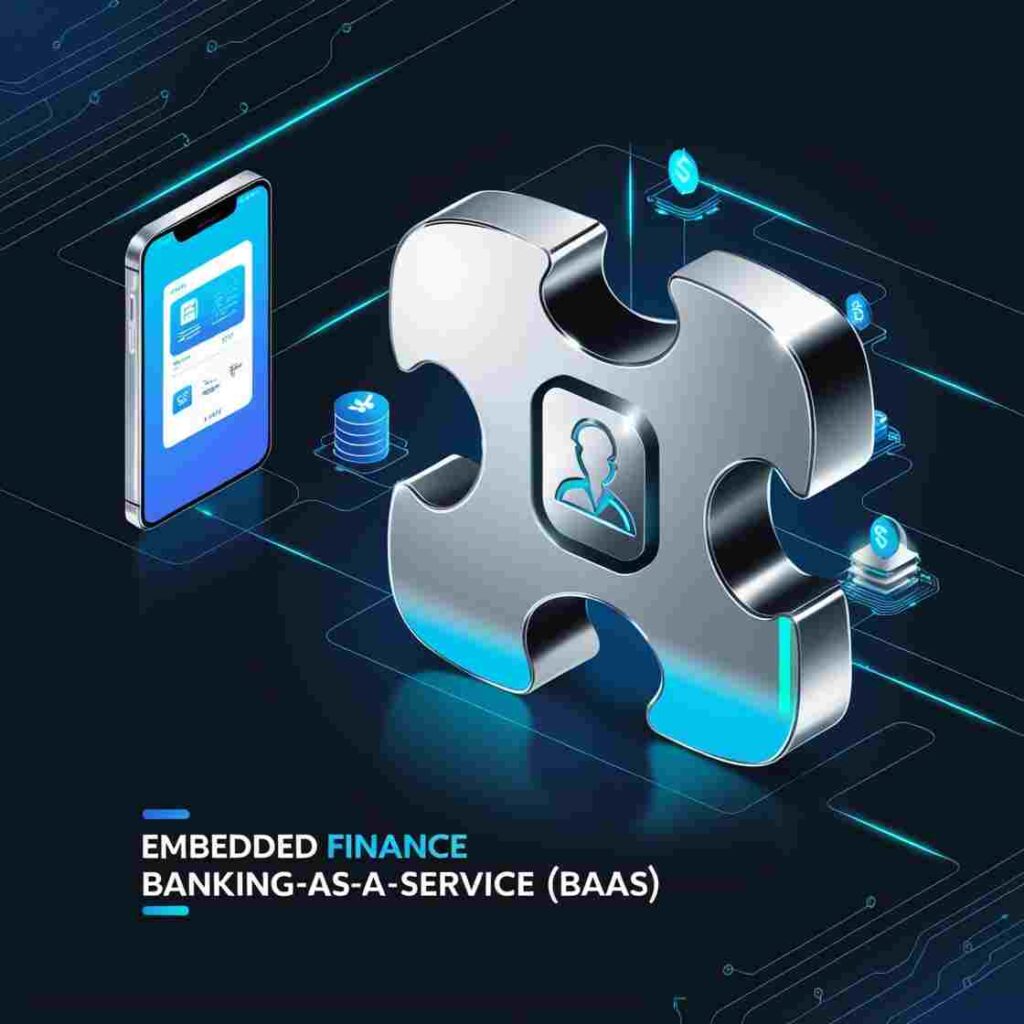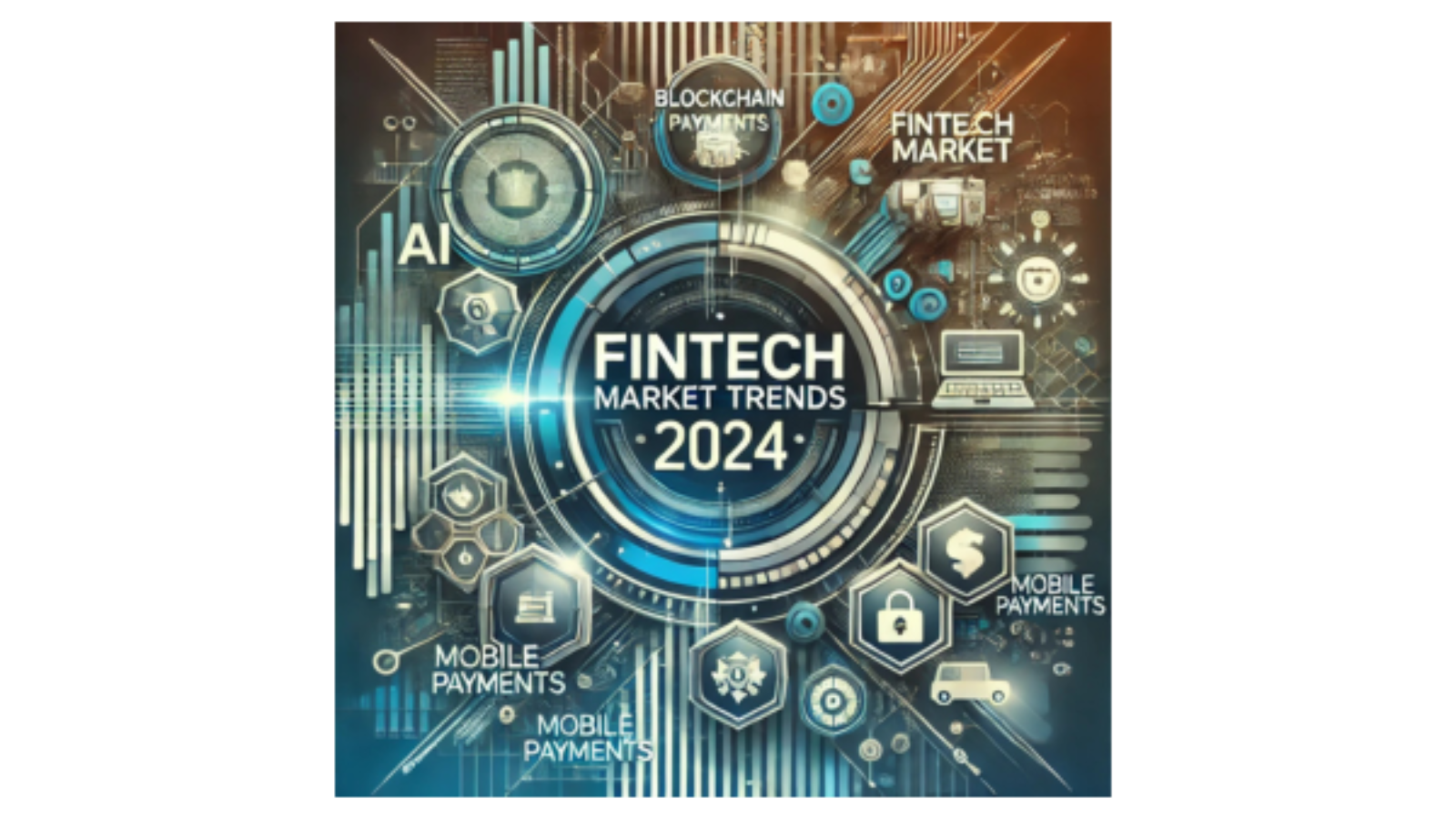The FinTech industry is evolving at a rapid pace, and 2024 is set to be a game-changer. From AI-driven financial services to the rise of blockchain beyond cryptocurrencies, the landscape of financial technology is transforming how we bank, invest, and manage money. Whether you’re a business leader, a FinTech enthusiast, or just curious about where the industry is heading, staying ahead of these trends will help you understand the future of finance.
In this blog, we’ll walk you through the top FinTech market trends of 2024 that are shaping the future of financial services. Ready? Let’s dive in!
Table of Contents
1. The Rise of AI and Machine Learning in FinTech

AI and machine learning (ML) are no longer just buzzwords in the FinTech world. They are now integral to transforming financial services and delivering more personalized, data-driven customer experiences. In 2024, AI will continue to streamline everything from customer service to fraud detection.
Personalized Banking at Your Fingertips
Gone are the days when you had to visit your bank for every little service. Thanks to AI, customers are enjoying the luxury of personalized banking. Imagine logging into your banking app, and based on your spending habits, the system suggests how you can save more or invest better. That’s not science fiction; that’s AI at work.
AI-Powered Predictive Analytics
Predictive analytics is another way AI is revolutionizing finance. Financial institutions are using it to analyze customer data and predict future financial behavior. Whether it’s identifying investment opportunities or detecting potential risks, AI is helping institutions make smarter decisions faster.
Real-Time Fraud Detection
With cybercrimes on the rise, security is a top priority for financial services. AI and ML help monitor transactions in real-time to flag suspicious activity and prevent fraud before it happens. In 2024, expect more advanced fraud detection systems powered by AI, keeping your money safe 24/7.
2. Blockchain’s Expanding Role Beyond Cryptocurrencies
When you think of blockchain, you probably think of cryptocurrencies like Bitcoin. But blockchain is so much more than that. In 2024, blockchain will continue to expand its role in finance, touching everything from smart contracts to digital identities and decentralized finance (DeFi).
Smart Contracts: Streamlining Complex Transactions
Blockchain technology enables smart contracts—self-executing contracts where the terms are directly written into code. These contracts eliminate the need for intermediaries like lawyers or notaries. Whether it’s processing real estate transactions or simplifying insurance claims, smart contracts are making financial services faster, more secure, and cost-effective.
Decentralized Finance (DeFi): The Future of Banking?
DeFi is quickly becoming one of the hottest topics in FinTech. It refers to a system where traditional financial services, like lending or trading, operate without centralized institutions (like banks). In 2024, expect DeFi to grow as more people seek alternatives to traditional banking systems.
Digital Identities on Blockchain
Ensuring security and privacy in digital transactions is more crucial than ever. Blockchain’s ability to create tamper-proof digital identities can revolutionize how we authenticate users and secure online transactions. Digital identities on blockchain will be particularly useful for global remittances, cross-border payments, and KYC (Know Your Customer) compliance.
3. Embedded Finance and Banking-as-a-Service (BaaS)
Have you ever used an app that lets you pay for something without leaving the platform? That’s called embedded finance, and it’s taking the world by storm. By integrating financial services directly into non-financial platforms, embedded finance is creating a seamless user experience.
What is Embedded Finance?
Imagine ordering an Uber and paying directly through the app without pulling out your wallet. That’s embedded finance in action. From e-commerce platforms to ride-hailing apps, financial services are being embedded into everyday activities. In 2024, expect this trend to explode as more businesses integrate payments, lending, and insurance into their apps.
Banking-as-a-Service (BaaS)
Banking-as-a-Service (BaaS) is enabling companies to offer their own banking services, even if they aren’t banks. Through BaaS platforms, businesses can provide financial products like loans or debit cards to their customers without building their own infrastructure. This trend will allow more companies to act like financial service providers, increasing competition and innovation in the market.

4. Digital Payments and the Evolution of Cashless Economies
The rise of digital payments has been one of the most significant FinTech trends of the last few years, and 2024 will only accelerate this shift toward a cashless society. With more people using contactless payments and mobile wallets, the way we spend money is evolving.
Contactless Payments and Mobile Wallets
During the COVID-19 pandemic, contactless payments became the norm. Whether you’re using Apple Pay, Google Wallet, or a credit card tap, cashless payments are here to stay. In 2024, expect further innovations in contactless technologies, making it easier than ever to pay without touching a physical object.
Growth of Cashless Economies
Some countries are already transitioning to cashless economies, where digital payments dominate. Scandinavia is leading the way, with many stores refusing to accept cash. As we move forward, more countries will adopt this model, creating more opportunities for digital payment solutions.
5. Cybersecurity in FinTech: Safeguarding Digital Transactions
As FinTech continues to grow, so do the risks. Cybersecurity has become a top priority for financial institutions as more people rely on digital platforms for their financial needs. In 2024, cybersecurity solutions will be more advanced and vital than ever in protecting digital transactions.
Keeping Your Data Safe
With everything from personal banking to investment management going digital, there’s a massive amount of sensitive data at risk. FinTech companies are investing heavily in data encryption, multi-factor authentication, and biometric security to keep their customers safe from hacking and data breaches.
AI-Enhanced Security
As we mentioned earlier, AI is not just useful for personalized banking—it’s also a key player in cybersecurity. AI can identify patterns and flag suspicious activities faster than any human. In 2024, expect AI-enhanced security tools to play an even bigger role in securing digital transactions and preventing fraud.

6. Open Banking and APIs: Enabling Financial Innovation
Open banking is transforming how financial services are offered by encouraging collaboration between traditional banks and FinTech startups. It allows third-party developers to access bank data (with customer consent) and build services that enhance the customer experience.
The Power of Open Banking
In 2024, open banking will lead to a boom in API-driven financial products. These APIs (Application Programming Interfaces) allow FinTech companies to build on top of traditional banks’ infrastructure, creating a more innovative and integrated financial ecosystem.
APIs: The Backbone of FinTech Innovation
APIs are what enable businesses to offer seamless financial services without needing to build everything from scratch. From payment processing to customer data management, APIs are the invisible engines powering many of the FinTech innovations we use every day.
7. The Growth of RegTech: Navigating Compliance Challenges
As financial regulations become more complex, so does the need for RegTech (Regulatory Technology). In 2024, RegTech will play a key role in helping financial institutions stay compliant with ever-changing regulations, making it easier to navigate the compliance landscape.
Automating Compliance with RegTech
RegTech solutions use AI and automation to streamline compliance processes. Whether it’s anti-money laundering (AML) checks or know your customer (KYC) requirements, RegTech helps businesses stay compliant without slowing down their operations.
Reducing Costs and Risks
Regulatory compliance can be costly and time-consuming, but RegTech offers a way to reduce both. By automating compliance, financial institutions can minimize risks while cutting down on costs associated with manual processes.
8. Sustainable FinTech: Green Finance and ESG Investing
As sustainability becomes a major focus across industries, green finance and ESG investing (Environmental, Social, and Governance) are gaining traction in the FinTech world. Consumers are demanding more sustainable financial products, and FinTech companies are answering the call.
What is Green Finance?
Green finance refers to financial activities that promote sustainable projects, like renewable energy or climate change initiatives. In 2024, we’ll see more FinTech platforms offering green investment options, allowing users to invest in projects that align with their values.
The Rise of ESG Investing
ESG investing is another trend that
will dominate 2024. More investors are considering ESG factors when making investment decisions, looking beyond just financial returns to include environmental and social impacts. FinTech platforms are making it easier than ever to invest in ESG-friendly companies.
Conclusion
The FinTech landscape is continuously evolving, and 2024 promises to bring even more innovation and disruption. From the rise of AI and blockchain to the growing importance of cybersecurity and sustainable finance, these trends will shape the future of financial services.
Whether you’re a business owner looking to integrate FinTech solutions, or a curious individual wanting to stay informed, understanding these trends will keep you ahead of the curve in the ever-changing world of finance.
Key SEO Takeaways:
- Keep an eye on the growth of AI and blockchain in financial services.
- Expect to see more embedded finance and open banking solutions in 2024.
- Sustainability and cybersecurity are not just trends but necessities in today’s FinTech world.

